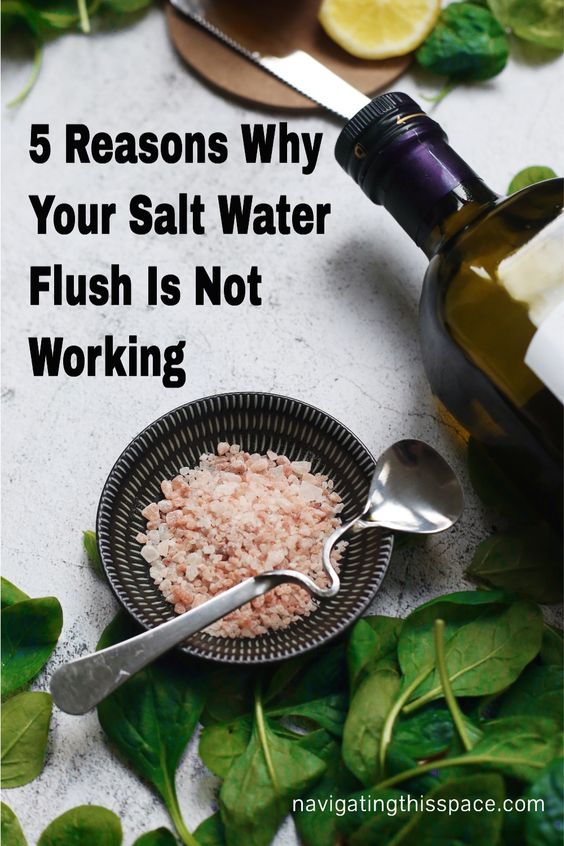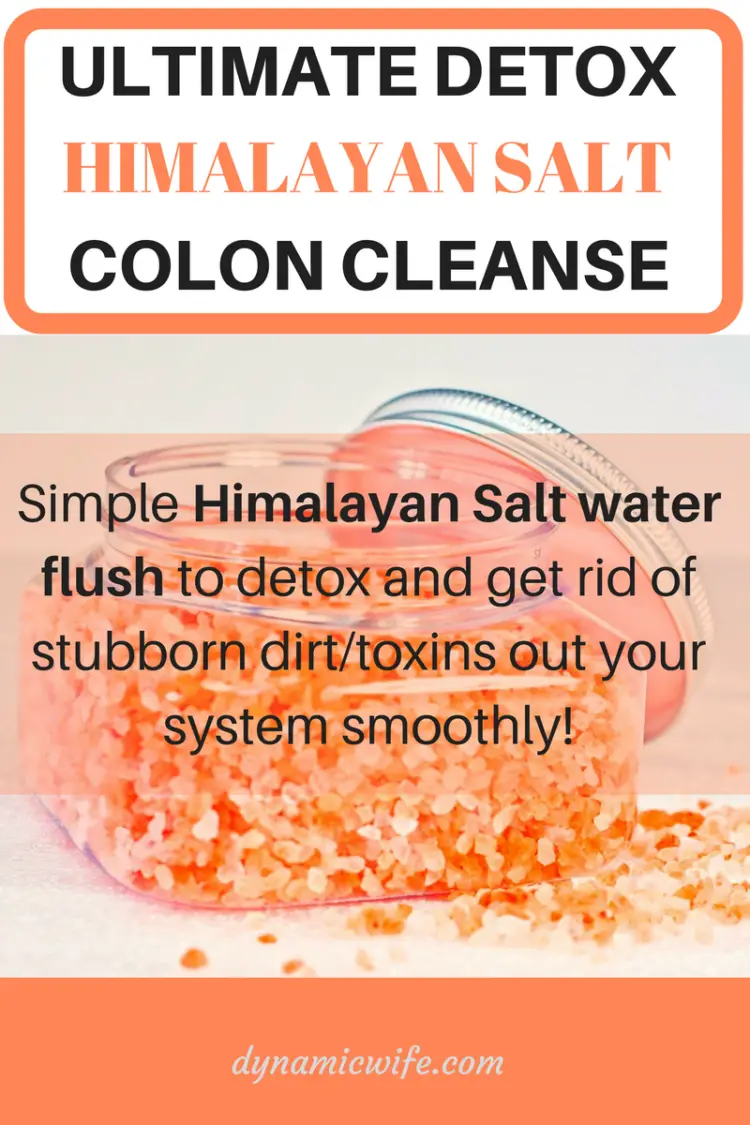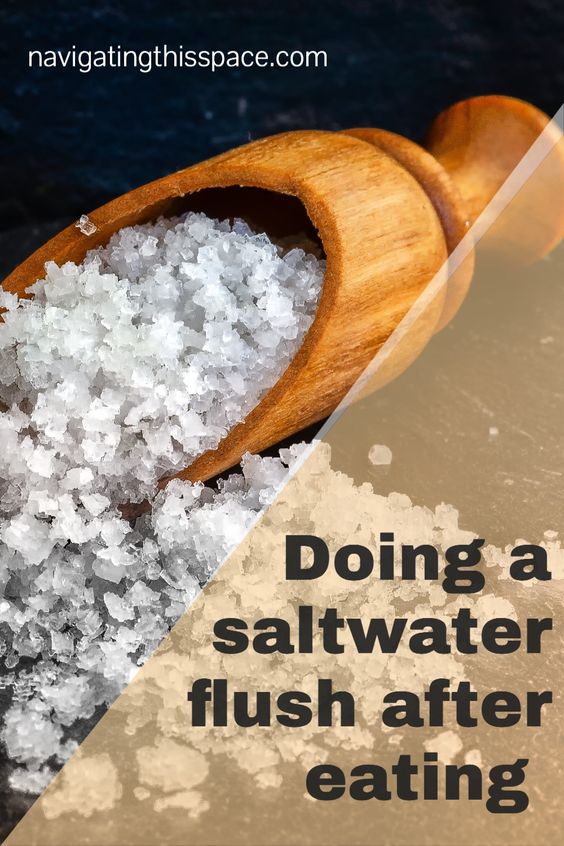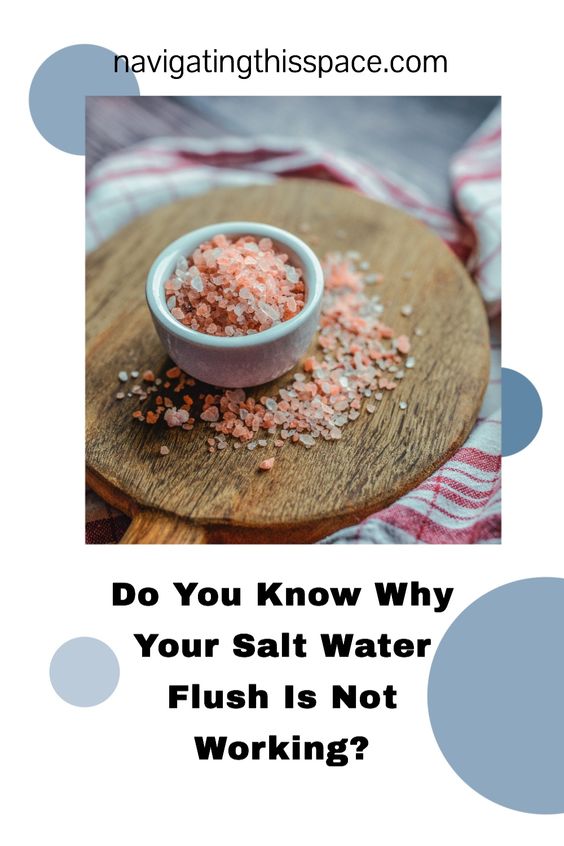How Often Should You Do The Salt Water Flush
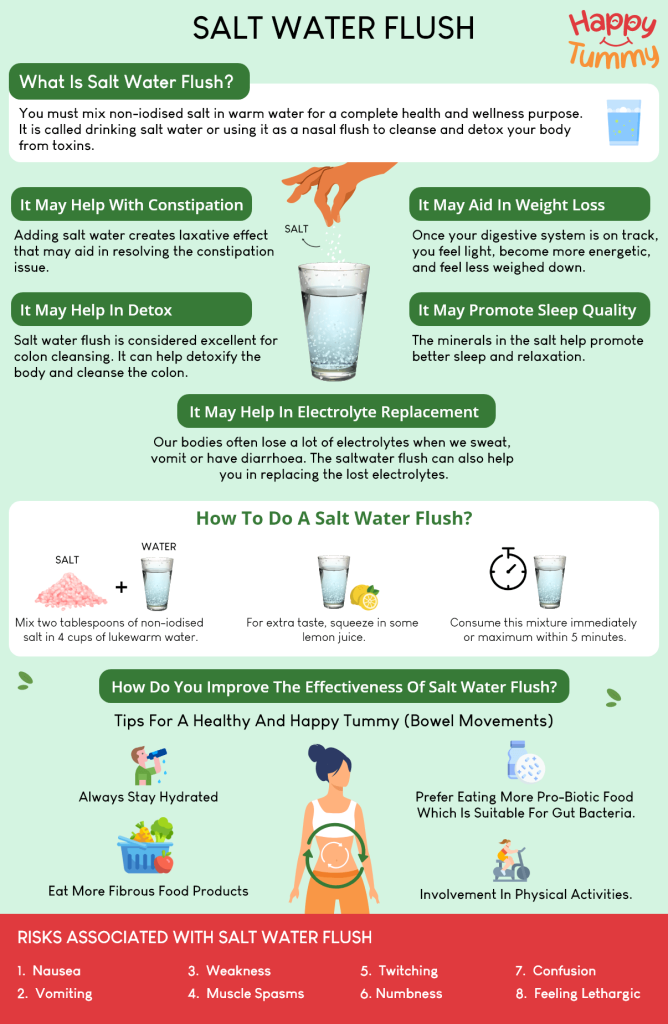
The internet is awash with detox trends, promising rapid weight loss, clearer skin, and a complete system reset. Among the more controversial and intensely debated is the salt water flush, a practice involving drinking a mixture of warm water and non-iodized salt to induce bowel movements. But how often, if at all, should one actually engage in this practice?
This article aims to explore the scientific basis, risks, and expert opinions surrounding the salt water flush. It will address the crucial question of appropriate frequency, moving beyond anecdotal evidence to provide a balanced and informed perspective. Ultimately, the goal is to empower readers to make responsible decisions regarding their health, supported by credible information.
Understanding the Salt Water Flush
The salt water flush, often touted as a natural detox method, operates on the principle of osmotic pressure. The high concentration of salt in the solution draws water into the colon. This influx of water stimulates bowel movements, theoretically flushing out accumulated waste.
Proponents often claim it eliminates toxins, reduces bloating, and jumpstarts weight loss. However, the scientific community largely views these claims with skepticism.
The Science (or Lack Thereof) Behind Detoxification
The human body possesses sophisticated detoxification systems, primarily involving the liver and kidneys. These organs efficiently filter and eliminate waste products. The notion that we need external interventions like salt water flushes to detoxify is often considered a marketing gimmick.
Dr. Linda Lee, a gastroenterologist at Johns Hopkins Medicine, states that "The body is very efficient at detoxifying itself." She adds, "Unless you have a specific medical condition affecting kidney or liver function, your body is perfectly capable of clearing out toxins."
Frequency: Proceed with Extreme Caution
Due to the potential risks, frequent or regular use of the salt water flush is generally not recommended by medical professionals. There is no established safe frequency for this practice.
While some online sources suggest occasional use (e.g., once a month or less), this advice is often based on anecdotal evidence rather than scientific research. Individuals with pre-existing health conditions should avoid it altogether.
Potential Risks and Side Effects
One of the primary risks is electrolyte imbalance. Sodium is crucial for various bodily functions, and a sudden influx can disrupt this delicate balance.
Dehydration is another significant concern, as the salt draws water out of the body. This can lead to further electrolyte imbalances and exacerbate existing conditions.
Other potential side effects include nausea, vomiting, bloating, and abdominal cramping. In severe cases, it could potentially exacerbate kidney issues or heart problems.
Dehydration and Electrolyte Imbalance
As Dr. Michael Picco from the Mayo Clinic explains, "Rapid fluid loss can lead to dehydration, which in turn can cause dizziness, weakness, and even more serious complications." He further emphasizes that disrupting electrolyte balance can negatively impact heart function and nerve transmission.
Kidney Strain
The kidneys work to filter the blood and maintain fluid balance. The salt water flush puts additional stress on these organs, potentially worsening pre-existing kidney conditions. Individuals with kidney disease should never attempt this practice.
Who Should Avoid the Salt Water Flush?
Certain individuals should absolutely avoid the salt water flush. This includes people with kidney problems, heart conditions, high blood pressure, gastrointestinal issues (such as IBS or Crohn's disease), and pregnant or breastfeeding women.
Children and the elderly are also at higher risk of complications and should not engage in this practice. It is always best to consult with a healthcare professional before trying any new detox regimen.
A Balanced Perspective: Alternatives and Healthy Habits
Rather than relying on potentially harmful practices like the salt water flush, focusing on sustainable lifestyle changes is a far more effective approach to promoting overall health and well-being. A balanced diet, regular exercise, and adequate hydration are fundamental.
Increasing fiber intake through fruits, vegetables, and whole grains can naturally promote healthy bowel movements. Probiotics can also support gut health and improve digestion.
Expert Recommendations and Cautions
The general consensus among medical experts is that the salt water flush offers little to no benefit and carries potential risks. There is no scientific evidence to support the claims of detoxification or significant weight loss.
If experiencing digestive issues, consulting a gastroenterologist is crucial for accurate diagnosis and appropriate treatment. Self-treating with methods like the salt water flush can be dangerous and may mask underlying medical conditions.
The Bottom Line: Proceed with Extreme Caution or Avoid Entirely
The question of how often to do a salt water flush ultimately boils down to this: the safest approach is to avoid it altogether. The risks outweigh the purported benefits, and safer, more effective alternatives exist for promoting overall health.
If one chooses to proceed despite expert recommendations, infrequent use (no more than once a month) and strict adherence to proper hydration are crucial. Individuals with pre-existing health conditions should absolutely avoid it.
Prioritizing a balanced diet, regular exercise, and consulting with healthcare professionals are essential steps in maintaining a healthy lifestyle. Avoid falling for quick-fix detox trends and focus on sustainable habits for long-term well-being.

